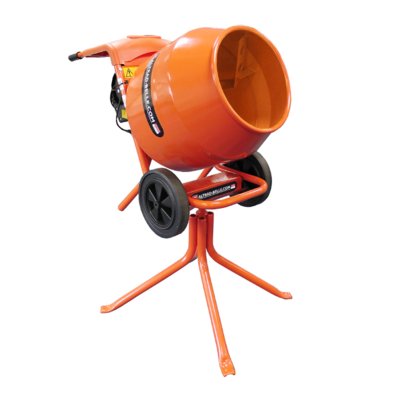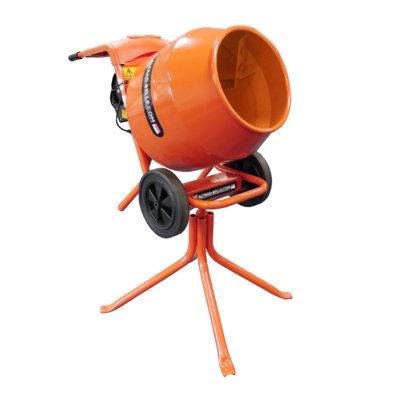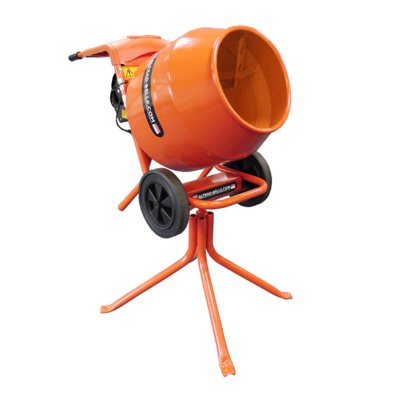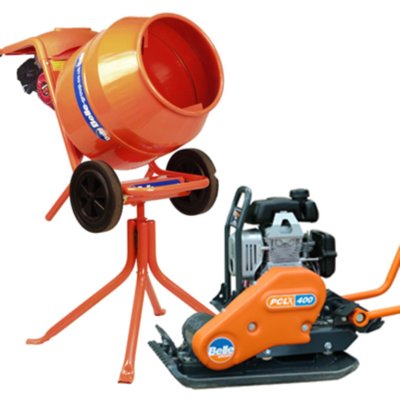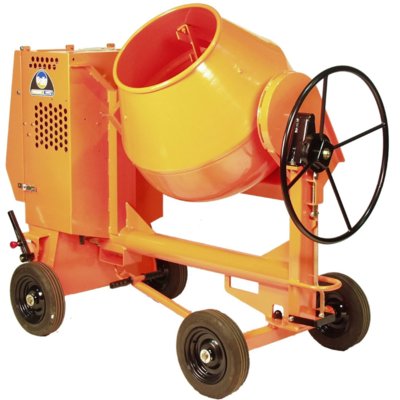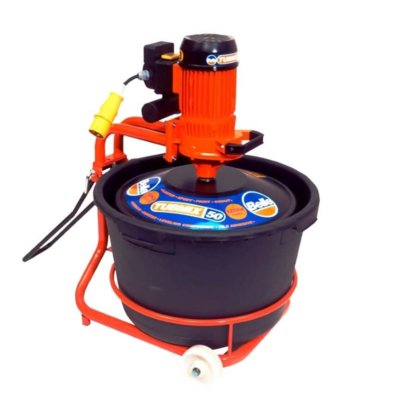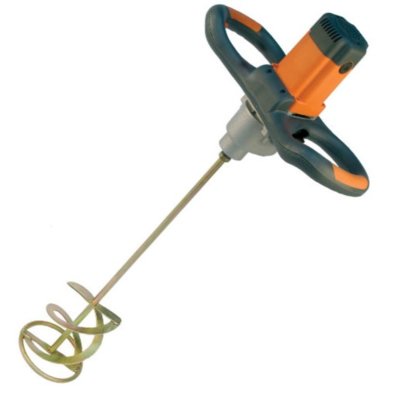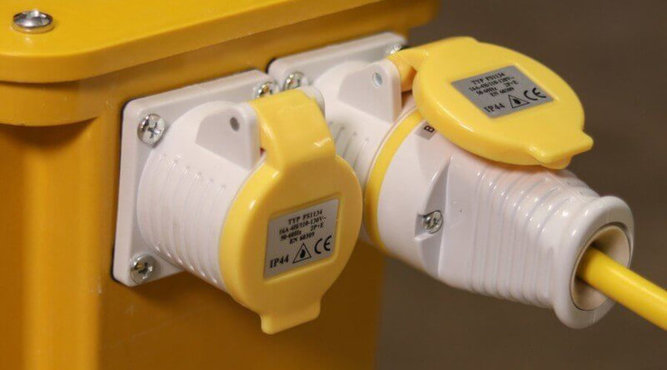Cement Mixer Hire
Mix concrete, mortar & screed for construction
Cement mixers allow you to create concrete, mortar, and screed for small to medium construction projects and masonry, such as building walls, patios, floors, slabs, paviours, kerbs, pipes, drains, and more. Our range of small mixers are ideal for trade and DIY customers, allowing you to mix your materials quickly and much easier than doing it by hand. They also allow you to produce larger quantities of concrete, with the perfect consistency for the application. All of our cement mixers come with a rotating and tilting stand so that you can tip them over and pour concrete out easily. Our selection includes -
- 240v Mixers. These are compact and lightweight mixers that are easy to use and need little to no maintenance. These electric cement mixers are safe to use indoors and in unventilated spaces, and they run off 220-240v domestic power supplies. They have a 130-litre drum capacity and are ideal for smaller jobs and domestic applications.
- 110v Mixers. These mixers have the same specifications and benefits as the 240v models. However, they run off 110-120v power supplies. These mixers are ideal for small to medium projects on site but require a 3kVA transformer to work with a standard domestic power socket.
- Petrol Mixers. These mixers are portable and robust, with extra thick 130-litre drums and quick-mix paddles. They do not need proximity to a power source, so they are ideal for site use. However, petrol cement mixers are not suitable for indoors or enclosed spaces & they need to be topped up with fuel.
- Diesel Mixers. These are large and robust mixers, with extra thick 250-litre drums and quick-mix paddles. They do not need proximity to a power source, so they are ideal for site use. However, petrol cement mixers are not suitable for indoors or enclosed spaces & they need to be topped up with fuel.
We have packages that combine cement mixers with other equipment, such as plate compactors and disc cutters. These packages are ideal for specific applications and allow you to hire equipment together cheaper than hiring them separately. We also have forced action resin mixers and paddle mixers for stirring epoxies, resins, screeds, polymer, plastics, plaster, sealants, paints, and adhesives.
The National Tool Hire Shops rates are highly competitive, and we offer great value delivery nationwide Take a look at our full concrete mixer range and book online or over the phone for collection from a local depot or home delivery.
Frequently Asked Questions
Do I need a transformer for a 240v cement mixer?
240v cement mixers are compatible with domestic plug sockets, and you do not need a transformer to power one. We do supply RCD power breakers with all of our 240v equipment, ensuring that they are safe to use at home and onsite.
How do you use a cement mixer?
Stood on a firm, level surface, pour approximately one gallon of water into the concrete mixer. Make sure that you use the correct amount of water for the cement mix, as explained in the instructions. If you add too much water, the cement mix will become too thin and unmanageable. If you do not add enough water, the concrete will become too thick and will not combine thoroughly. Next, pour the cement mix into the drum, plug the mixer in and turn it on. Allow the machine to fully mix the contents and ensure that there is no visible powder left. Leave the cement mixer running for as long as you need it to keep the contents moist and manageable. When ready, turn it off and slowly tilt the drum to pour the fresh cement out. You can use a mixer to produce general purpose concrete, foundation concrete, paving concrete, standard mortar, strong mortar, and more.
How do you clean a cement mixer?
You can use a stiff brush or a mix of 1 inch (2½cm) gravel and water to clean the cement mixer out to prevent any residue from hardening inside it.
What is a good concrete mix?
There is a range of different concrete and mortar mixes than can be made for different jobs. General purpose concrete is made up of 1 part cement, 2 parts sand, and 3 parts coarse aggregate. General purpose concrete is suitable for most uses, but not for foundations or paving. Standard mortar is made up of 1 part cement, 5 parts soft sand, with 1 part lime or plasticiser optional. Standard mortar is used for sheltered bricklaying, rendering, and more. These are 2 basic mixes, and many more proportions can be used for different applications.
Where can I hire a 240v Cement Mixer near me?
National Tool Hire has over 2,000 Click & Collect locations across the UK and we offer free delivery and collection.



